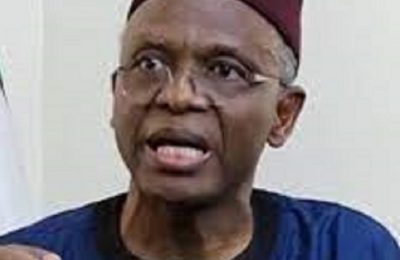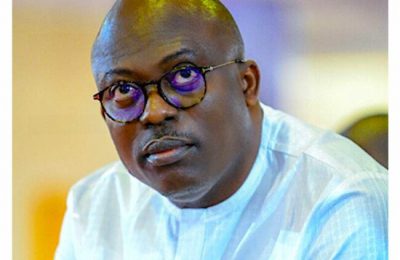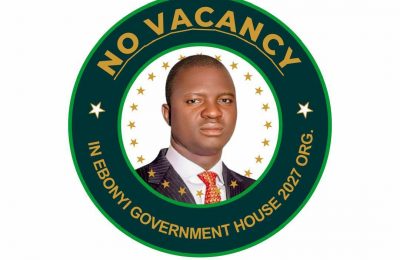For many decades, Africans were under colonial rule that gave them little or no chance to express their desires. Despite the numerous obstacles, some youngsters (who eventually became renowned African leaders) at the time successfully championed the freedom of their people. These leaders are referred to as the fathers of Africa.
Here are the African leaders who fought for the independence of their countries:
1. Kwame Nkrumah
Kwame Nkrumah was born on 21 September 1909 in Ghana. He grew up in a small fishing village before studying at Lincoln University and the University of Pennsylvania between 1939 to 1943 for his Bachelors in Arts and Theology, then Master’s of Philosophy and Education from the same universities respectively.
It was during his days in college that Nkrumah joined the Pan-African Movement, the West African Students’ Union, and the African Students Association of America. Nkrumah fought fearlessly, leading Ghana to its independence in 1957. He was the first African-born Prime Minister of Ghana. Nkrumah was a great inspiration to Martin Luther King, the American civil rights activist.
By 1962, Kwame started facing different challenges, and intense opposition that led to disintegration between him and Ashanti nationalists. In 1966, he was removed through a couple spearheaded by the Ghanaian military and police force. Kwame Nkrumah died while in exile in Conakry, Guinea in 1972 after battling cancer.
2. Julius Nyerere
Julius Nyerere was born on 13 April 1922 in Tanganyika to a chief called Nyerere Burito. At the age of 12, he started attending Government Primary School in Musoma then proceeded to Tabora Boys Government Secondary School — where he received a scholarship to study at Makerere University where he obtained a teaching diploma.
His love for African socialism started developing during his schooling at the University of Edinburgh where he obtained a Masters in History and Economics in 1952. Nyerere joined the Colonial Legislative Council in 1958 and was also elected Chief Minister in 1960. He became a Prime Minister in 1961 and a year later, became the president of Tanganyika now known as Tanzania — which he ruled from 1964 to 1985.
He was the first African president to voluntarily step down after some of his policies were not working. Julius was famously known by his Swahili name, “Mwalimu” which means “teacher” because it was his profession before becoming a politician. He died of Leukaemia in a London hospital in 1999.
READ ALSO: 5 African nations where presidents rule beyond 8 years
3. Jomo Kenyatta
Jomo Kenyatta was a nationalist, African statesman, and the first Prime Minister and President of independent Kenya. Kenyatta was born in 1894 to Ngengi — a leader of an agricultural settlement. In 1928, Jomo established a newspaper called “Mwigithania” which he used to orientate people about self-improvement and gain their support.
In the 1930s, Kenyatta joined the Communist Party alongside other writers and black nationalists. They protested against the Italian invasion of Ethiopia. He also helped organise the fifth Pan-African Congress that took place in Manchester, England. The main discussion at the Congress was for nationalists to demand independence from the colonialists.
In 1962, at the London Conference, Kenyatta negotiated the constitutional terms that led to Kenya’s independence and it was celebrated on 13 December 1963. The country became a one-party republic. Kenyatta became the president under a new constitutional amendment which fortified his authority and the central government. Jomo Kenyatta is widely referred to as the father of the nation. He died in Mombasa, Kenya in 1978.
4. Samora Machel
Samora Machel was the first president of independent Mozambique from 1975 to 1986. He was born on 29 September 1933 in Chilembene, Mozambique. He attended missionary schools afterward he became a nurse. Machel was a man whose political stance emanated from the experience he had growing up with his family whereby his parents were forced to grow cotton for the Portuguese settlers and they were also displaced from their land.
Samora joined the Mozambique Liberation Front —- this is where he was sent for military training. After he rose through the ranks, Machel became a leader in 1970. Samora ruled Mozambique with all he had maintaining economic relationships with other countries until 1986, when he died in a plane crash that occurred in South Africa.
5. Sekou Toure
Sekou Toure was a leading African leader and the first president of the Republic of Guinea from 1958 to 1984. The first riot he spearheaded in 1936 led to his expulsion from a French technical school he attended in Conakry. It was during the time he was working at a business firm called the Niger Francais that he developed an intense interest in the labour movement. Afterward, he orchestrated a 76-day strike.
In 1951, he was elected to the French National Assembly as a representative of Guinea but was not allowed to take his seat. Until he became a mayor of Conakry in 1955 he was allowed to take his place at the National Assembly. In 1958, the French President, Charles de Gaulle offered French territories to become independent or a new federal community.
Toure and the Democratic Party of Africa led a successful campaign for independence. Guinea became the first French-speaking nation to gain independence which happened on 2 October 1958 and Toure became the president. He died in 1984 in Cleveland, United States.
6. Robert Mugabe
Robert Mugabe was the first Prime Minister of Zimbabwe formerly called Rhodesia. He was born on 21 February 1924 in Kutama Southern Zimbabwe. Mugabe, the son of a village carpenter, trained as a teacher at the Roman Catholic Mission School. It was at the University College of Fort Hare in South Africa he was exposed to politics.
Between 1956 to 1960, he was a teacher before returning to Zimbabwe in 1960. Mugabe was arrested in 1964 for a speech and he spent the next ten years of his life in prison. While he was there, he obtained law degrees and also participated in a coup. After Robert was freed in 1974, there were negotiations with the British government, and a new parliamentary election was introduced. His party won the election; therefore, Mugabe became the Prime Minister. He died in 2019 in Singapore.
7. Modibo Keita
Modibo Keita was the first president of French Sudan from 1960 to 1968 (now Mali). He was born on 4 June 1915 in Bamako, Mali. As a teacher, he co-founded the Sudanese Union in 1945 and became the Secretary-General. In 1946, he was imprisoned by the French; two years later, he won a seat in the French territorial assembly serving as a deputy and becoming the first African Vice President.
In 1958, Keira campaigned for Sudan to be an independent state under the French territories which was successful and led to the creation of the Sudanese Republic in 1958. Afterward, it was changed to the Mali Federation which comprised Sudan and Senegal. Due to a disagreement, these nations split and the federation was changed to the Independent Republic of Mali in 1960. Keita remained the president but he was overthrown in a bloodless coup in 1968. He died in Bamako, Mali in 1977.
8. Seretse Khama
Seretse Khama was an African leader who fought for the independence of his country despite being born into a royal family. He was born on 1 July 1921 in Serowe Bechuanaland, now Botswana. He ruled his country from 1966 to 1980.
During his stay in Britain, he fell in love with an Englishwoman named Ruth Williams. His relationship with her was opposed by the Whites which led to him staying in exile. After he gained his freedom, he led the movement for Botswana’s independence. He founded the Botswana Democratic Party in 1962 and became Prime Minister.
After Botswana gained independence in 1965, Khama was elected as the President. He used multiracial democracy to promote his country by strengthening the economy and providing free education. He died in Gaborone, Botswana in 1980.
9. Kamuzu Banda
Kamuzu Banda was born in 1898 in Kasungu, Malawi. He was the leader of Malawi’s national movement and the first president of the country. He attended the University of Chicago and Meharry Medical College, Tennessee between 1931 to 1937. Banda began getting involved in politics in the 1940s when White settlers demanded Nyasaland (Malawi) and Rhodesia (Zambia) be merged. Despite his objection and that of others, the federation was established in 1953.
He became the minister of local government and natural resources from 1961 to 1963. The federation was eventually dissolved in 1963 the same year Banda became the Prime Minister. When Malawi became an independent country in 1964, his position was retained as the paramount ruler of the country. He died in Johannesburg, South Africa in 1997.
READ ALSO: Top 5 richest presidents in Africa
10. Kenneth Kaunda
Kenneth Kaunda is another African leader who strived tirelessly for the independence of his country. He was born on 28 April 1924 in Chinsali, Northern Rhodesia (Zambia). His mother was the first African woman to teach in Zambia while his father, David Kaunda was a Reverend.
Kaunda joined politics in 1949 and became one of the founders of the Northern Rhodesian African National Congress. After he visited Martin Luther King in Atlanta in 1960, he organised a civil campaign and emerged as the head of the United National Independence Party. Kaunda became the first president of the independent Zambia in 1964. He died on 17 June 2021.







